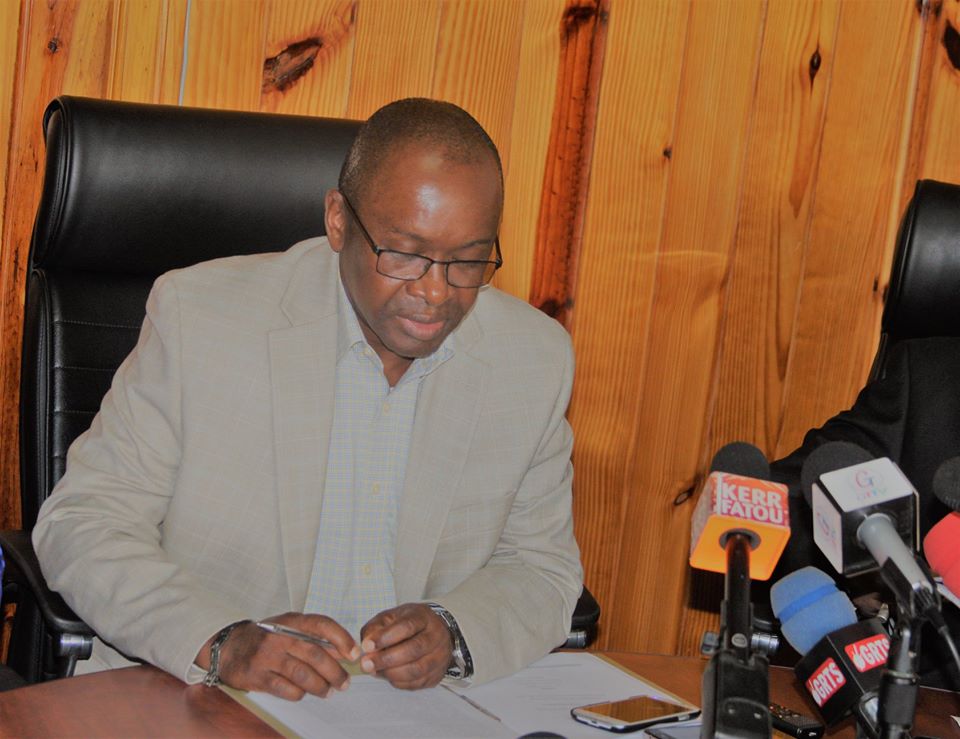Gambia’s Constitutional Review Commission (CRC) on Friday published the proposed draft constitution of the Republic of The Gambia, 2020.
CRC chairman, Justice Cherno Suluyman Jallow, said the commission found the opinions expressed by the general public, including all their stakeholders, very illuminating referenced real issues.
“Some were of a constitutional nature, some were of a statutory nature that is, matters that properly should be left to legislation enacted or to be enacted by national assembly, others related to issues of policy and clear failures of implementation of existing laws. Our remit is to deal with draft of the new constitutional law issues,” Jallow said Friday at press conference at the CRC head office, 17km outside Banjul.
The drafting process was preceded by a series of consultations, meetings, surveys and research exercises in a bid to come up with a constitution. As part of the national consultations, some 106 meetings were held across different communities within the seven administrative areas of the Gambia.
According to him, the report which accompany the final draft of the new constitution will, where considered appropriate, reference the non-constitutional issues that have been raised so that the authorities concerned become aware of them, revealing that if they are already and hopefully take necessary steps to address the people’s concerns.
In reviewing the current constitution, he said the commission also had an obligation to consider international treaties that The Gambia is a party to and consequently under which it has certain legal obligations.
He added that the commission considered what constitutes international best practice in relation to certain specific subject matters, pointing out that the commission also have an obligation to “adhere to national values and ethos” as provided in section 6 (2) (c) of the CRC act.
Chairman Jallow disclosed that the draft constitution comprises 20 chapters, three chapters less than what is contained in the current constitution and it has a total of 315 clauses.
“We have come to the conclusion that while a leaner constitution may be desirable, it ought not to be the yard sticks by which we measure the strength and effectiveness of the constitution. We have taken into account the fact that we have a young democracy with not so strong institution- and the need to ensure clarity,” he said.
He further revealed that each chapter of the constitution addresses a different issue such as citizenship, republic and sovereignty, leadership and integrity, among others.




